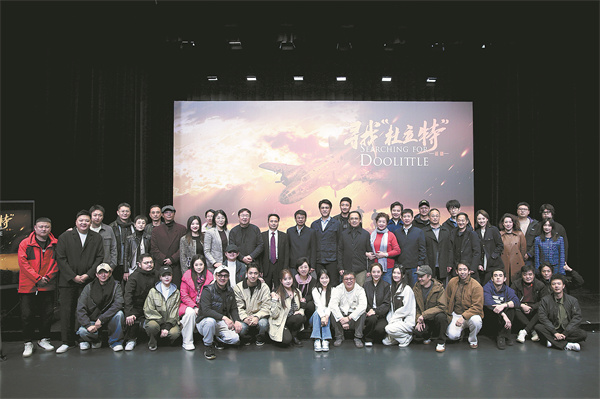

On April 18, 1942, shortly after the attack on Pearl Harbor, Lieutenant Colonel James Doolittle led 16 B-25 bombers in a bold mission to strike key military and industrial targets in Japan. The operation, known as the Doolittle Raid, marked the first Allied air raid on the Japanese mainland during World War II. However, due to unforeseen complications, the mission was launched ahead of schedule, and as the bombers entered Chinese airspace, they encountered heavy rain and communication failures, leading them to abandon their intended landing site in Quzhou, Zhejiang province.
The planes eventually crashed or made forced landings across a vast stretch of eastern China, including parts of Zhejiang, Jiangxi, Anhui, and Fujian provinces. Of the 75 airmen involved in the mission, 64 were rescued by Chinese civilians and military personnel, three lost their lives in the crash landings, and eight were captured by Japanese forces. Despite the grave risks, ordinary Chinese men and women — farmers, students and laborers — banded together to help the American pilots. They treated their wounds, provided shelter, and guided them to safety in Quzhou, before transferring them further inland to Chongqing and Kunming in Yunnan province, far away from Japanese forces.
This extraordinary story of bravery and compassion forms the inspiration for Searching for Doolittle, a new Chinese play that dramatizes this little-known but pivotal chapter of history. The play will premiere in Quzhou on Nov 15 and 16, before being staged in Beijing in January.
Searching for Doolittle focuses on the courage of Zhejiang's ordinary citizens who, despite the language barriers and the risk of punishment from Japanese forces, risked their lives to assist the downed American airmen. The play brings to life the stories of humble farmers, passionate university students, and determined laborers who worked tirelessly to build airstrips, all while defying the oppressive conditions of war.
"As we mark the 80th anniversary of the victory in the Chinese People's War of Resistance Against Japanese Aggression (1931-45) and the World Anti-Fascist War, this play takes on special significance. It raises important questions about why we must search for Doolittle, how we search, and the indomitable spirit of those who carried out this search," says Jin Dong, director of the China Coal Mine Art Troupe. "It is not just about the rescue itself, but about understanding the moral strength of those who took action during this difficult time."
Wang Qun, deputy director of Quzhou's publicity department, echoes this sentiment, highlighting Quzhou's critical role in the historical rescue effort.

"Quzhou is a key witness to this remarkable chapter of history. This collaboration allows us to showcase not only Quzhou's unique landscape but also the resilience and moral strength of its people on a national stage," Wang says.
The play's director, Zhong Hao, and the creative team have drawn heavily from historical research, making several trips to Quzhou to gather local oral histories, cultural symbols, and personal accounts. These rich sources have helped ensure an authentic portrayal of the heroism and determination of those involved in the rescue.
"The contrast between the kindness of ordinary people and the violence of the war is what stands out," says playwright Yang Shuo. "We aim to show how these everyday people, despite their smallness in the grand scale of history, rose to do something extraordinary."
"Searching for Doolittle is not only a tribute to the bravery of the Chinese people during wartime but also an exploration of the timeless values of humanity and courage in the face of unimaginable odds. Through the lens of this remarkable rescue, the play invites the audience, especially young people, to reflect on the power of compassion, unity and the human spirit during times of crisis," says Jin.